Taoglas' multi-band GNSS front ends simplify and accelerate product development
Thursday, 29 September 2022 11:08 Taoglas, a leading provider of advanced components for a smarter world, launches their first in a new series of high precision, multi-band GNSS front ends for autonomous vehicles, precision agriculture, automotive, unmanned aerial vehicles (UAV) and robotics at Mobile World Congress (MWC 2022).
The new TFM.110A comes fully integrated with two cascaded low noise amplifiers (LNA) and pre-fil
Taoglas, a leading provider of advanced components for a smarter world, launches their first in a new series of high precision, multi-band GNSS front ends for autonomous vehicles, precision agriculture, automotive, unmanned aerial vehicles (UAV) and robotics at Mobile World Congress (MWC 2022).
The new TFM.110A comes fully integrated with two cascaded low noise amplifiers (LNA) and pre-fil Kayhan Space Awarded SpaceWERX Orbital Prime Contract
Thursday, 29 September 2022 11:08 With the space economy and critical defense initiatives dependent on safe rendezvous and proximity operations (RPO), Kayhan Space, along with partners Astroscale U.S. and the University of Texas at Austin, reports it has won a U.S. Space Force award to develop an intelligent platform that autonomously enables spacecraft to safely engage with on-orbit support vehicles for services such as refueli
With the space economy and critical defense initiatives dependent on safe rendezvous and proximity operations (RPO), Kayhan Space, along with partners Astroscale U.S. and the University of Texas at Austin, reports it has won a U.S. Space Force award to develop an intelligent platform that autonomously enables spacecraft to safely engage with on-orbit support vehicles for services such as refueli DOD's largest telescope receives mirror recoat, preserves space domain awareness
Thursday, 29 September 2022 11:08 The Air Force Maui Optical and Supercomputing site's Advanced Electro-Optical System, or AEOS, the Department of Defense's largest telescope, measuring 3.6 meters or 11.9 feet, has received a face-lift.
Located on the summit of the 10,023-foot volcano Haleakala, the telescope is part of a series of telescopes called the Maui Space Surveillance System, which the U.S. Space Force uses for sp
The Air Force Maui Optical and Supercomputing site's Advanced Electro-Optical System, or AEOS, the Department of Defense's largest telescope, measuring 3.6 meters or 11.9 feet, has received a face-lift.
Located on the summit of the 10,023-foot volcano Haleakala, the telescope is part of a series of telescopes called the Maui Space Surveillance System, which the U.S. Space Force uses for sp Somewear Labs raises $13M Series A round
Thursday, 29 September 2022 11:08 Somewear Labs, the enabler of critical communications for the world's most important organizations, reports it has raised $13.7 million in a Series A funding round.
The round was led by a group of over a dozen current and former Fortune 500 CEOs and legendary investors, chaired by David Dorman (former CEO of AT&T and former Chairman of Motorola), and including Egon Durban (Co-CEO of Silver
Somewear Labs, the enabler of critical communications for the world's most important organizations, reports it has raised $13.7 million in a Series A funding round.
The round was led by a group of over a dozen current and former Fortune 500 CEOs and legendary investors, chaired by David Dorman (former CEO of AT&T and former Chairman of Motorola), and including Egon Durban (Co-CEO of Silver Aquarian Space and American Binary plan to bring encrypted internet to Solar System
Thursday, 29 September 2022 11:08 American Binary is proud to announce that the company is working with Aquarian Space to bring post-quantum encrypted Internet to the Moon and greater Solar System.
Post-Quantum Cryptography (PQC) is new encryption that is designed to be unbreakable by a future quantum computer.
The White House-see Presidential Memo dated May 4, 2022-and most of the U.S. intelligence community are advocati
American Binary is proud to announce that the company is working with Aquarian Space to bring post-quantum encrypted Internet to the Moon and greater Solar System.
Post-Quantum Cryptography (PQC) is new encryption that is designed to be unbreakable by a future quantum computer.
The White House-see Presidential Memo dated May 4, 2022-and most of the U.S. intelligence community are advocati Satellite Vu becomes a supporter of the Terra Carta - Sustainable Markets Initiative
Thursday, 29 September 2022 11:08 Satellite Vu, the British Earth Observation company set to provide carbon emissions data across the globe, has become a supporter of HRH King Charles III's Terra Carta - Sustainable Markets Initiative to promote climate action.
As members of the SMI Terra Carta mandate, Satellite Vu will help deploy valuable ESG-aligned data and analytics to provide vital carbon emissions knowledge to orga
Satellite Vu, the British Earth Observation company set to provide carbon emissions data across the globe, has become a supporter of HRH King Charles III's Terra Carta - Sustainable Markets Initiative to promote climate action.
As members of the SMI Terra Carta mandate, Satellite Vu will help deploy valuable ESG-aligned data and analytics to provide vital carbon emissions knowledge to orga Qld Govt and SmartSat CRC invest in new Queensland Earth Observation Hub
Thursday, 29 September 2022 11:08 The Queensland Earth Observation (EO) Hub, a partnership between the Queensland Government and SmartSat Cooperative Research Centre (CRC), was launched on the weekend with the announcement of two new earth observation research projects.
The SmartSat CRC is spearheading the development of Australia's space industry by bringing industry, universities, and research together to support a thriv
The Queensland Earth Observation (EO) Hub, a partnership between the Queensland Government and SmartSat Cooperative Research Centre (CRC), was launched on the weekend with the announcement of two new earth observation research projects.
The SmartSat CRC is spearheading the development of Australia's space industry by bringing industry, universities, and research together to support a thriv Satellogic joins GREEN+ Jurisdictional Program to monitor subnational protected areas
Thursday, 29 September 2022 11:08 Satellogic has announced a contract to monitor all subnational protected areas on the planet through the new GREEN+ Jurisdictional Programme. The provision of reliable and consistent high-quality satellite data will be governed by the CC35 Capital Cities Secretariat, the Global Footprint Network and The Energy Coalition, among other respected stakeholders committed to conserving the Earth's "las
Satellogic has announced a contract to monitor all subnational protected areas on the planet through the new GREEN+ Jurisdictional Programme. The provision of reliable and consistent high-quality satellite data will be governed by the CC35 Capital Cities Secretariat, the Global Footprint Network and The Energy Coalition, among other respected stakeholders committed to conserving the Earth's "las Webb and Hubble capture detailed views of DART impact
Thursday, 29 September 2022 10:49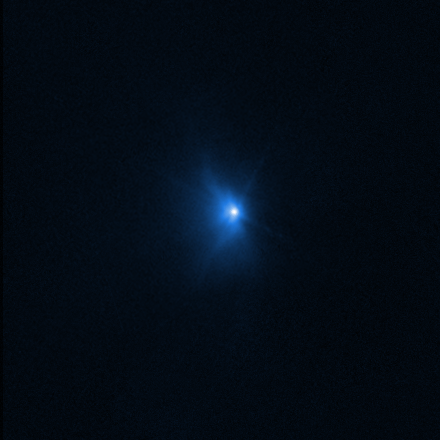
Two of the great space observatories, the NASA/ESA/CSA James Webb Space Telescope and the NASA/ESA Hubble Space Telescope, have captured views of a unique experiment to smash a spacecraft into a small asteroid. Observations of NASA’s Double Asteroid Redirection Test (DART) impact mark the first time that Webb and Hubble were used to simultaneously observe the same celestial target.
NASA and Astra modify TROPICS launch contract
Thursday, 29 September 2022 10:44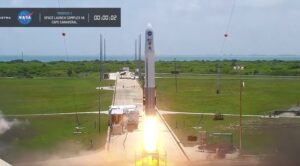
NASA and Astra Space have revised a launch contract originally awarded for the launch of a cubesat constellation after Astra retired the launch vehicle that would have launched those spacecraft.
House committee questions FCC orbital debris rule
Thursday, 29 September 2022 09:24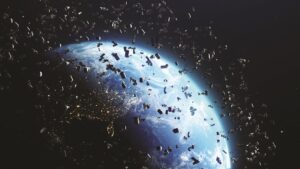
Ahead of a Federal Communications Commission vote on a proposal to set a five-year deadline for deorbiting low Earth orbit satellites, leaders of the House Science Committee are questioning the FCC’s authority to do so.
ESA Impact Q3 is now online!
Thursday, 29 September 2022 07:35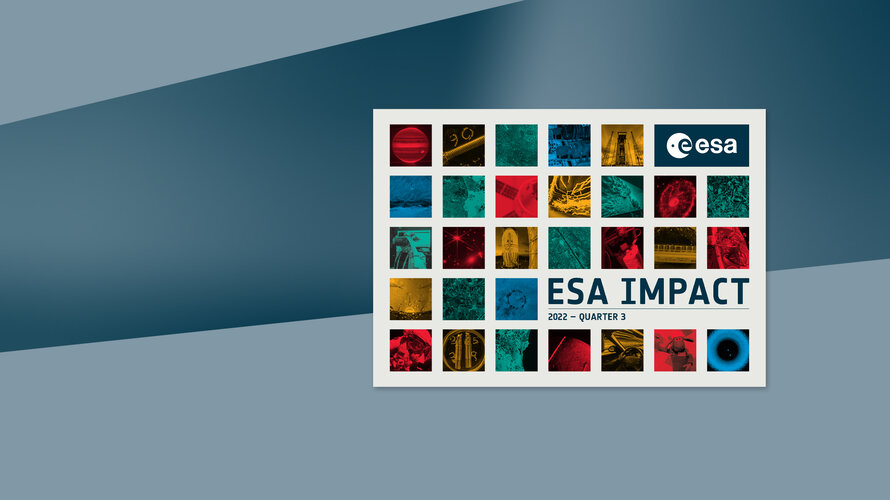
ESA Impact Q3 is now online!
Welcome to this edition of ESA Impact, an interactive publication covering stories and images from the third quarter of 2022.
Guetlein: improved space domain awareness essential for national security
Wednesday, 28 September 2022 23:05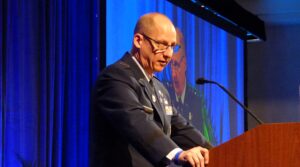
With space essential to military operations, better understanding of what objects are in orbit and the threats they may pose is “foundational” for space security, a Space Force general said.
The post Guetlein: improved space domain awareness essential for national security appeared first on SpaceNews.
Shift to remote work draws mixed reactions
Wednesday, 28 September 2022 22:45
Some space company leaders are embracing the trend toward remote work. Others caution against it. In any case, the pandemic has changed the calculus for current and prospective employees.
The post Shift to remote work draws mixed reactions appeared first on SpaceNews.
Lamborn: ‘Merit on both sides’ of debate over Space National Guard
Wednesday, 28 September 2022 22:12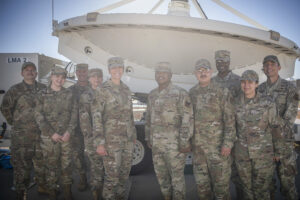
Rep. Doug Lamborn (R-Colo.), a key congressional proponent of establishing a Space National Guard, said he would consider an alternative proposal endorsed by Space Force leaders and by the Biden administration.

